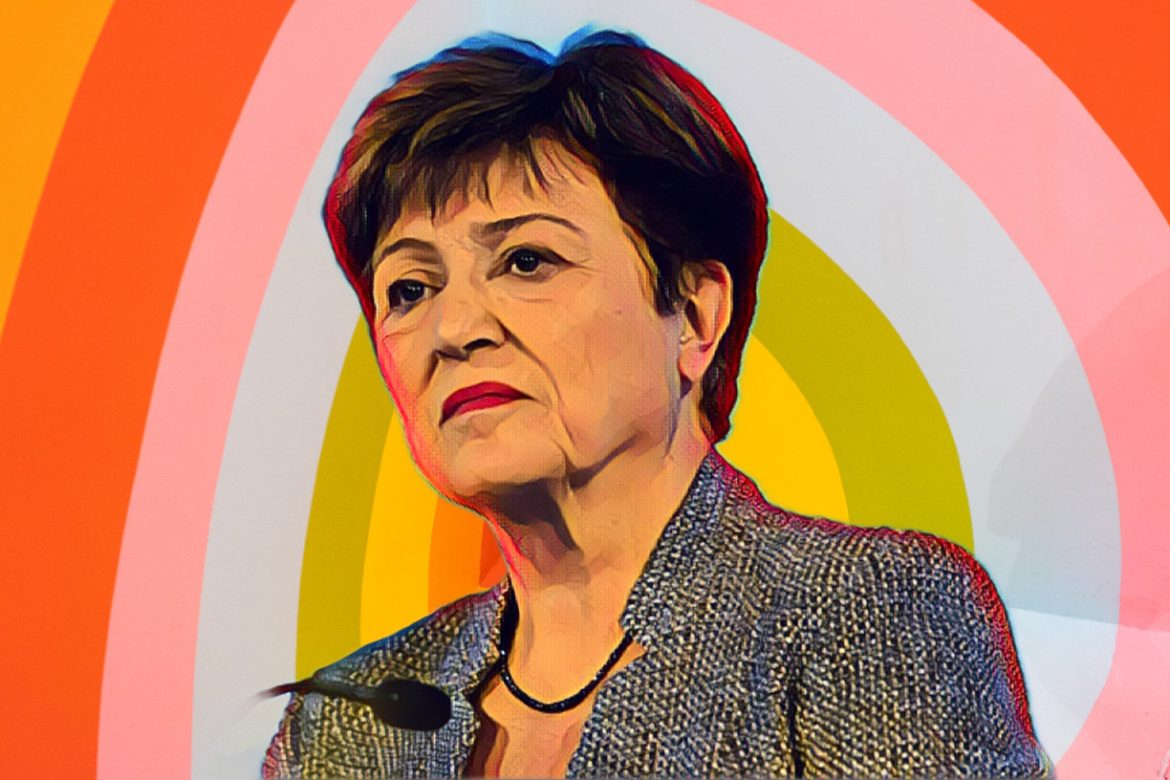In a stride toward economic stability, Ghana stands on the cusp of a pivotal agreement that could redefine its financial landscape. The country is in the advanced stages of finalizing a Memorandum of Understanding (MoU) with its bilateral creditors, marking a crucial phase in the restructuring of its debts. This development was disclosed by Kristaline Georgieva, the Managing Director of the International Monetary Fund (IMF), during a two-day working visit to Accra, underscoring a hopeful horizon for Ghana’s economic recovery.
The negotiation, as revealed by Georgieva in a roundtable engagement with journalists in Accra, signifies a tangible leap towards financial solvency. Ghana’s proactive engagement with its bilateral creditors, aimed at restructuring its debts, reflects a deliberate and strategic effort to navigate the complexities of its fiscal challenges. According to Georgieva, this progress is a testament to Ghana’s commitment to re-establishing fiscal balance and ensuring sustainable economic growth.
The restructuring of debt is more than a mere financial arrangement; it is a strategic maneuver to alleviate the fiscal burdens weighing down on the nation’s economy. By renegotiating the terms of its debt, Ghana seeks to unlock new avenues for economic revitalization, allowing for increased expenditure in critical areas vital for the stabilization of the economy. Such financial prudence is essential for laying the groundwork for a robust economic recovery, offering a glimmer of hope in the midst of fiscal constraints.
The dialogue surrounding debt restructuring extends beyond bilateral creditors to encompass negotiations with Eurobond holders and private creditors. The intricacies of these discussions are pivotal, with Georgieva emphasizing the importance of tact and fairness in the negotiations. The specter of previous financial rescues looms large, with Ghana’s three bailout packages hanging in the balance. A fair and equitable restructuring deal is paramount to avoid the pitfalls encountered by other nations, such as Zambia, which faced hurdles in unlocking the full potential of their bailout packages due to unfavorable debt restructuring agreements.
Ghana’s financial strategy involves a multifaceted approach, balancing the need for domestic financial realignment with the intricacies of international debt negotiations. The domestic restructuring program, although met with criticism, serves as a foundational step towards broader fiscal reform. The assurance from the official creditor committee, including notable creditors like China, offers a semblance of stability in the tumultuous waters of debt renegotiation. However, the ultimate success of these endeavors hinges on the ability to secure a fair and beneficial deal with Eurobond creditors, ensuring that the sacrifices made domestically are not undermined by unfavorable external agreements.
Georgieva’s discussions with President Akufo-Addo highlight the critical juncture at which Ghana finds itself. The nation’s economic future is intricately tied to the outcomes of these negotiations, underscoring the importance of strategic foresight and steadfast determination in securing a deal that safeguards the nation’s interests.
The significance of Ghana’s engagements with the IMF cannot be overstated. The nation’s adherence to the key targets set under the IMF program, particularly in areas such as inflation control and economic growth, signifies a commendable adherence to fiscal discipline. The IMF’s support has been instrumental in steering Ghana towards a path of economic stabilization, validating the decision to seek external assistance in these challenging times.
As Ghana navigates this critical phase of debt restructuring and economic reform, the lessons of the past and the challenges of the present converge to chart a course towards a more stable and prosperous future. The nation’s journey is emblematic of the broader challenges faced by countries striving for economic resilience in the face of daunting financial obstacles. Through strategic planning, careful negotiation, and unwavering commitment to fiscal responsibility, Ghana aspires to emerge from this period of uncertainty with a stronger, more sustainable economic foundation.





1 comment
Thanks for sharing. I read many of your blog posts, cool, your blog is very good.